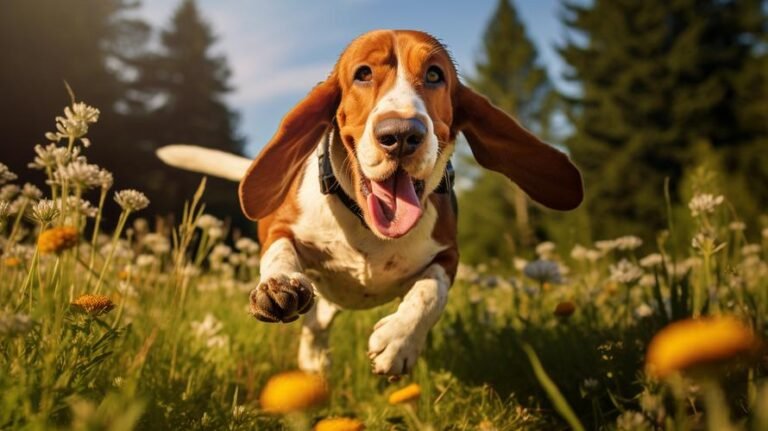Did you know that Basset Hounds were once upon a time, great hunting dogs? Their keen sense of smell, unique physique, and incredible determination made them excellent companions for French nobles during hunting trips. Over the years, Basset Hounds have evolved into lovable, somewhat pudgy, couch potatoes, but they’ve kept their regal air and distinct personality traits. Today, we are going to delve deeper into the health of these adorably lethargic dogs and provide tips to ensure they stay in their best shape.
Let’s start by dispelling the myth that Basset Hounds, with their droopy eyes and extensive skin folds, are supposed to look unhealthy. If you think about it, we humans too have different body types, and being different doesn’t necessarily mean being unhealthy. Same is the case with our four-legged buddies. Each breed has its unique set of characteristics, making each one special in their own way.
That being said, Basset Hounds, like all breeds, do have certain health conditions they could be prone to. But that doesn’t mean all Basset Hounds will suffer from these health issues – it just means they are slightly more susceptible than certain other breeds.
You might have heard that Basset Hounds often suffer from obesity. Their seemingly lazy attitude and everlasting love for food makes maintaining a healthy weight an uphill task. They’re probably the dog version of those humans who glance at a cupcake and gain a pound. But doesn’t it happen with humans too? Some of us gain weight faster than others. It doesn’t mean that Basset Hounds can’t maintain a healthy weight; it just means their owners need to be extra cautious and keep them on an specific diet and exercise regimen.
As part of their regular routine, they need a balanced diet and regular exercise. A walk around neighbors or a game of fetch every day can do wonders for these dogs. Having said that, Basset Hounds are experts at convincing their humans for more food and less exercise with their sorrowful eyes. Succumbing to these antics can lead to obesity for these dogs, so firmness is key.
Another common health challenge for Basset Hounds could be maintaining healthy ears. Those long, floppy ears might make them incredibly endearing, but they can also be grounds for infections. These ears aren’t just cute, they’re functional—Bassets use their ears like sweepers to bring interesting scents towards their amazing noses. But those sweeping ears also tend to trap moisture, leading to a greater risk of ear infections. Regular check-ups and cleanings are necessary to keep their ears healthy.
Bone and joint health can be a concern for Basset Hounds too, mainly because of their unique body structure. Those short, bowed legs carry a lot of weight, which can sometimes lead to problems like hip or elbow dysplasia. Regular vet check-ups and early detection can help manage these conditions if they occur.
Now that we’re aware of potential health concerns, is there something we can do to ensure our Basset Hounds stay healthy for as long as possible? For sure! And it all begins with sourcing your pup from a reputed, responsible breeder. These breeders often conduct genetic tests to ensure they are not passing on any hereditary conditions, giving your pup a healthy start to life.
Once the pup is home, regular vet check-ups, a balanced diet, and a good exercise routine is your ticket to a healthy dog. And even though Basset Hounds may not be the most athletic dogs around, they love to sniff and explore, making smell-based games an excellent choice to keep them physically active and mentally stimulated.
In conclusion, Basset Hounds, like any dog, can face health issues, but proactive management combined with regular care, can ensure they stay happy, healthy, and fill your life with endless moments of love and laughter. With those droopy eyes, long ears, and a heart full of love, Basset Hounds, indeed, can be healthy dogs. After all, health isn’t a one-size-fits-all concept, it’s about being the best you can be, and that goes for our furry pals too!



